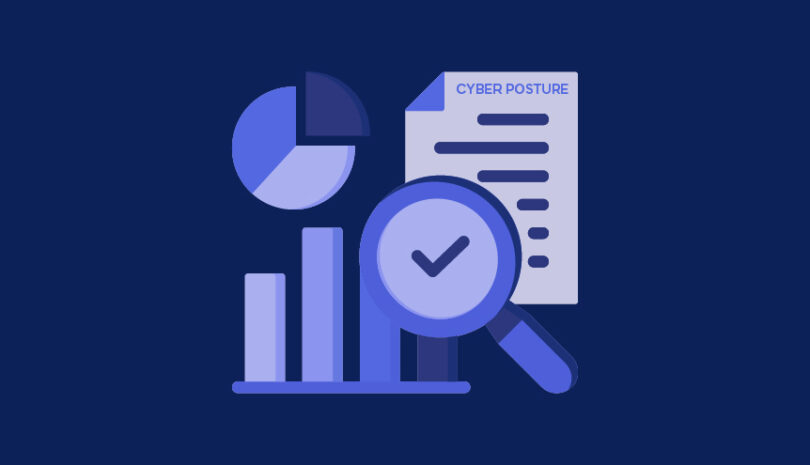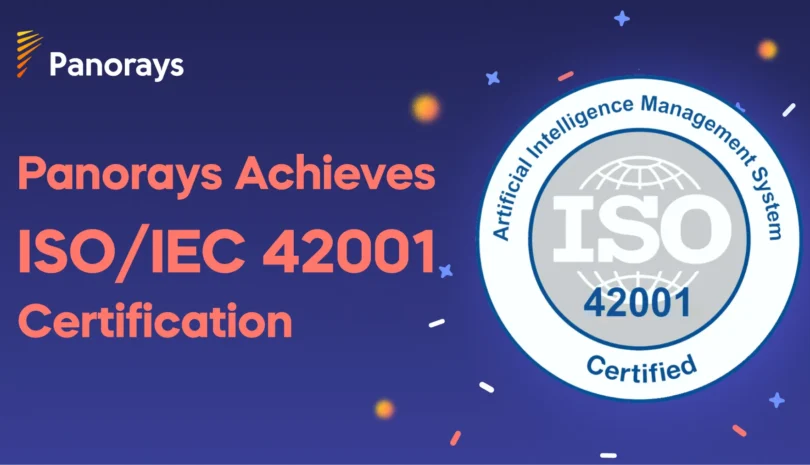Your organization is torn between two conflicting issues. You depend on third-party service providers, vendors, and contractors, but you’re also trying to protect your company from risks. You know that third parties raise your exposure to risks that range from cyber attacks and data breaches to regulatory non-compliance and operational disruptions. But you also need these entities for smooth and cost-effective business operations.
How can you thread a path between these two challenges? The solution begins with vendor assessment questionnaires or VAQs. These are structured tools that aim to collect information about third-party risks, such as each vendor’s cybersecurity measures, data privacy policies, compliance history, operational continuity, and more.
Well-planned vendor assessment questionnaires bring you the information you need to evaluate and manage third-party risk. They equip you to make informed decisions about how much access to allow them to your data and critical business systems, what contingency plans to build in case they aren’t available, and even whether to work with them at all.
However, the usefulness of VAQs depends on them being comprehensive, timely, and relevant to your needs. In this article, we’ll discuss the top vendor assessment questionnaires that can help you ensure vendor compliance, security, and reliability, as part of a robust third-party risk management (TPRM) program.
What Is a Vendor Assessment Questionnaire (VAQ)?
A vendor assessment questionnaire is a tool that organizations use to assess the risks associated with third-party vendors. Effective VAQs systematically collect information about a vendor’s operations, security practices, and compliance measures, helping you identify and mitigate potential vulnerabilities before they affect your company.
By thoroughly evaluating vendors, VAQs ensure that vendors align with your policies, legal requirements, and industry standards before you enter into a business relationship. Ongoing VAQs alert you to changes in vendor risk profiles, help verify compliance, and assist in risk management throughout the vendor lifecycle.
VAQs can cover a whole range of risk areas, including cybersecurity, data privacy, compliance, financial stability, and operational risks. They’ll gather information about the vendor’s security policies, incident response plans, and data protection measures; check that vendors adhere to industry standards and legal requirements; review their economic health; and look for potential disruptions to service delivery.
By giving you a structured way to detect and manage risks, VAQs are a critical element of vendor risk management. The best VAQs help you build resilience and protect your organization from financial losses, data breaches, and compliance issues.
Criteria for Selecting the Best Vendor Assessment Questionnaires
VAQs are the foundation of effective TPRM, so they need to be reliable and accurate. The best vendor assessment questionnaires should align with your industry and regulatory environment. Some industries have to comply with specific standards, like HIPAA or ISO 27001, and certain regulations like GDPR or NIST only apply to particular regions.
You want VAQs that are as comprehensive as possible. Good VAQs should cover a wide range of risk domains, including cybersecurity, data privacy, financial stability, operational risks, and compliance. This way, you’ll have an assessment of all potential vulnerabilities and avoid blind spots where serious threats could develop.
User-friendly interfaces that support easy customization and scalability are also important. You want to be able to tailor your questionnaires to your unique requirements and risk tolerances without developing complicated workarounds and scale them as your organization and vendor base grows in size.
Last but not least, your VAQs should integrate natively with the rest of your risk management tools and platforms. Seamless integration allows for better tracking, analysis, and reporting of vendor risks, and makes the overall risk management process more streamlined and efficient.
Top Vendor Assessment Questionnaires
With that introduction, let’s discuss what goes into the best vendor assessment questionnaires. You want VAQs that cover all your main risk areas, including cybersecurity, data privacy, regulatory compliance, business continuity, financial stability, and industry-specific concerns. Each type of VAQ needs to be tailored to the kind of risks that it’s addressing, so the criteria for top VAQs varies depending on the risk category.
Here’s a deep dive into the elements that make up robust, reliable vendor assessment questionnaires.
Cybersecurity Assessment Questionnaires
Top cybersecurity assessment questionnaires focus on evaluating vendors’ IT security measures, threat detection, and response capabilities. They are designed to assess how well a vendor can protect sensitive data, detect potential threats, and respond to security incidents so that you feel confident in your vendors’ ability to safeguard information and defend their systems against cyber attacks.
Robust cybersecurity assessment questionnaires should ask detailed questions about password policies, data encryption, and incident response plans. You want to know exactly how they’ll detect, prevent, and mitigate vulnerabilities that could enable cyber attacks on their and your critical business systems.
Data Privacy and Protection Questionnaires
Data privacy and protection questionnaires center around the vendor’s ability to comply with stringent data privacy laws like GDPR, CCPA, and HIPAA. They should enable you to evaluate how well vendors manage, store, and protect personal and sensitive data, so as to minimize the risks of data breaches and legal penalties.
You want data privacy questionnaires to ask questions about critical aspects of data privacy and protection. They should drill down into each vendor’s data storage practices and access control policies, and examine their history of data breaches to gauge their reporting and incident management capabilities.
Regulatory Compliance Questionnaires
Effective regulatory compliance questionnaires should zero in on vendor adherence to relevant regulations and standards. These might include SOC 2, ISO 27001, PCI DSS, or other industry-specific requirements. Make sure that vendors have the necessary controls in place to meet obligations around risk prevention, reporting, and incident response.
Remember, your compliance is only as strong as that of your weakest vendor. You want to investigate their policies and procedures carefully to verify their compliance status. Ask to see certifications that demonstrate their audit schedules, examine documentation for compliance processes, and check that they perform frequent gap analyses.
Business Continuity and Disaster Recovery Questionnaires
Satisfying yourself about a vendor’s business continuity and disaster recovery involves focusing on how prepared they are for operational disruptions or disasters. You want information about their measures for detecting the earliest signs of potential threats, and their plans for maintaining operations in the face of unexpected events like natural disasters, political and social incidents, and system failures.
Getting this insight into vendor resilience requires asking specific questions about their business continuity plans. These should cover their backup protocols, recovery time objectives (RTOs), business continuity, and disaster recovery plans.
Financial Stability Questionnaires
Robust financial stability questionnaires concentrate on evaluating the economic health and stability of your vendors so that you know whether they have the financial bandwidth to sustain their operations and meet contractual obligations.
You want to ask questions that help you assess the risk of vendor insolvency, service interruptions due to lack of funds, and the potential impact on your own operations. For example, ask to see key financial metrics and audits, debt-to-equity and debt-to-asset ratios, and their strategies and plans for long-term financial sustainability and growth.
Custom Industry-Specific Questionnaires
As well as the above-mentioned questionnaires which are important for all organizations, you also need to probe issues that are relevant for your industry. If you operate in healthcare, finance, retail, or critical infrastructure like data management services, you’ll need to check whether your vendors meet your sector’s stringent compliance and risk requirements.
For example, healthcare companies would need to ask about the vendor’s compliance with HIPAA; finance companies might need to investigate the vendor’s DORA and SOX compliance; and retail businesses working with payment processors should check their PCI-DSS adherence.
Tools for Managing Vendor Assessment Questionnaires
It can take a lot of work to produce the best vendor assessment questionnaires. Thankfully, there are tools that can help. Platforms like Panorays streamline VAQ management with a centralized platform that allows you to handle multiple vendor assessments and automated processes that improve accuracy and timeliness in vendor evaluations so you can make more informed, data-driven decisions.
These solutions automate much of the effort by generating and sending comprehensive questionnaires that are easily customized for your industry and risk tolerance. They automatically follow up for timely responses, validate replies, highlight risk gaps that could harm your organization, and remove vendors from consideration if they trigger preset red flags. VAQ tools also resend questionnaires according to your schedule, so that you can monitor changing risk posture among your vendors.
Automating vendor assessment processes helps you save time, free up resources, and improve accuracy for vendor risk management. Your security and risk management teams will benefit from more reliable insights for risk management strategizing, and timely replies that speed up vendor onboarding. VAQ platforms usually integrate with your security and risk management systems, helping enhance data accuracy and reduce inconsistencies.
Best Practices for Using VAQs Effectively
As well as efficient, automated VAQ tools, the best vendor assessment questionnaires require certain best practices. First and foremost, customize questionnaires for your risk profile and business needs. Adjust your questions and risk scoring to focus on the areas that matter most to your organization, such as compliance, cybersecurity, or operational continuity.
You should also set clear expectations with your vendors. Make sure that they know your deadlines for responses to VAQs, and emphasize the importance of submitting accurate and comprehensive information. Building open channels for communication helps them grasp your requirements, reduces delays, and prevents misunderstandings.
Bear in mind that your VAQs can’t remain static. The business world is dynamic, with new regulations and threats appearing all the time. You need to regularly update your VAQs so that they remain relevant to the current reality.
Finally, combine your VAQs with an easy-to-understand risk scoring system, so you can quickly spot high-risk vendors and identify those areas that need immediate attention or additional monitoring. This way, you’ll be able to prioritize the most urgent risks and allocate resources more efficiently.
Vendor Assessment Questionnaire Solutions
At a time when third-party vendors, contractors, and service providers can pose such serious risks to your organization, vendor risk assessment has never been more critical. You want to ensure that your company is using the best vendor assessment questionnaires, which reduce work for your team and deliver timely, accurate, and reliable insights into vendor risk profiles.
Adopting robust VAQs equips your teams with a structured and efficient way to assess potential and existing vendors for security, compliance, and other risks. It gives you the information you need to make quick risk management decisions, safeguard data, maintain operational continuity, and ensure compliance with regulations and standards.
This blog is a great place to start. It’s full of tool suggestions and practical examples for best practices for VAQs, helping you to enhance your vendor risk assessment. Panorays offers a user-friendly platform that streamlines VAQ management, with customizable questionnaires, automated VAQ sending, tracking, and validation, and reliable analysis. The dynamic Risk DNA scores help you make informed decisions based on up-to-date risk profiles, and automated workflows create task lists for vendors to close risk gaps and remove friction from risk mitigation tasks.
Ready to ramp up your vendor assessment questionnaires and save time on vendor risk management? Contact Panorays to learn more.
Vendor Assessment Questionnaire FAQs
-
Vendor assessment questionnaires cover topics that relate to security, compliance, and operational risks. They’ll usually include questions about data protection practices, cybersecurity measures, financial stability, regulatory compliance, business continuity and disaster recovery plans, third-party subcontractor management, and ethical practices. VAQs also address vendor performance and incident response protocols, to ensure that the vendor aligns with your risk management and compliance needs.
-
That depends on how complex the vendor assessment questionnaire is, and how ready the vendor is to provide information. On average, it takes anywhere from a few hours to a few days for vendors to fill out a VAQ, but automated VAQ tools can help gather information to speed up the process.
-
No, all VAQs are not the same. They might all cover the same core topics, but the questions can vary widely. You’ll want to adjust your VAQs according to your industry-specific needs, regulatory requirements, and risk tolerance, and direct the focus onto particular areas like cybersecurity or financial stability. Additionally, some VAQs are designed for quick assessments and some for more in-depth evaluations.
-
A security questionnaire is a specific type of vendor assessment questionnaire. It focuses on the vendor’s security posture, with questions that probe their data protection, encryption, network security, incident response, and compliance with security standards. A VAQ is a broader evaluation that assesses a vendor’s overall risk, including areas like their financial stability, business operations, and compliance.



